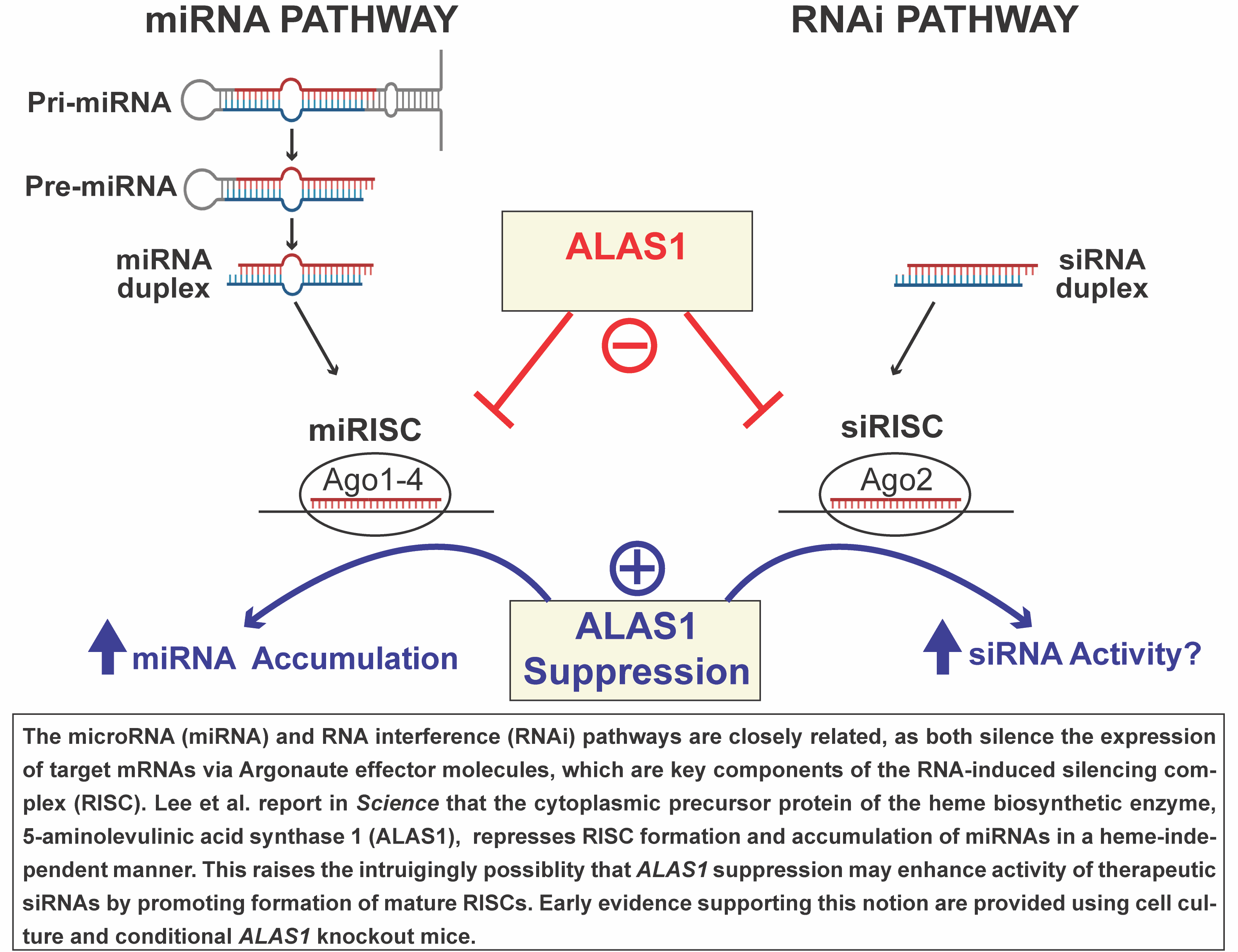
microRNAs (miRNAs) and small interfering RNAs (siRNAs) are 21- to 22-nucleotide RNAs that guide Argonaute-class effectors to targets for repression. In this work, we uncover 5-aminolevulinic acid synthase 1 (ALAS1), the initiating enzyme for heme biosynthesis, as a general repressor of miRNA accumulation. Although heme is known to be a positive cofactor for the nuclear miRNA processing machinery, ALAS1-but not other heme biosynthesis enzymes-limits the assembly and activity of Argonaute complexes under heme-replete conditions. This involves a cytoplasmic role for ALAS1, previously considered inactive outside of mitochondria. Moreover, conditional depletion of ALAS activity from mouse hepatocytes increases miRNAs and enhances siRNA-mediated knockdown. Notably, because ALAS1 is the target of a Food and Drug Administration-approved siRNA drug, agents that suppress ALAS may serve as adjuvants for siRNA therapies.



